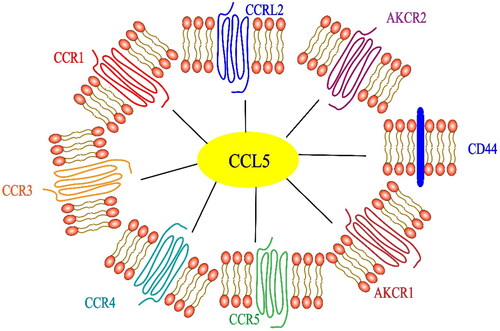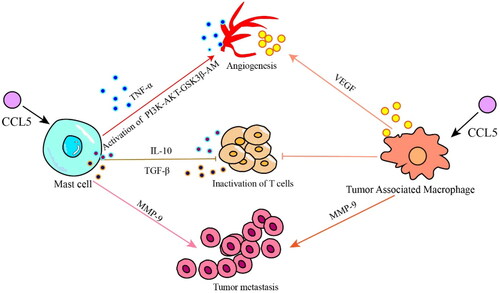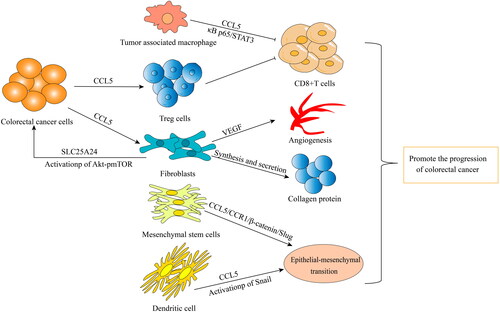Figures & data
Table 1. Function of the CCL5 receptor.
Table 2. Expression of CCL5 in human cells and its role.



